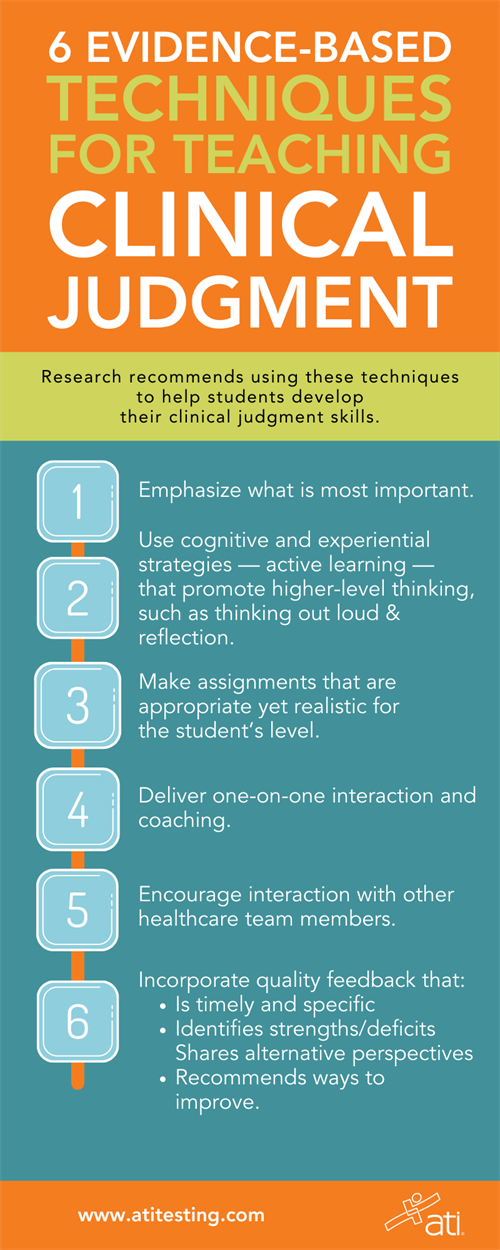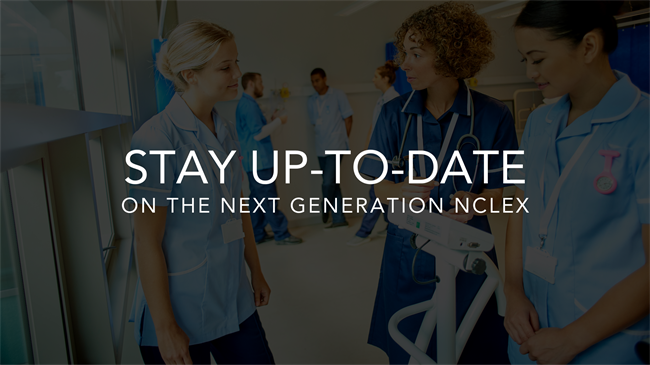YOU NEED TO KICK CLINICAL JUDGMENT LEARNING INTO HIGH GEAR
1ST STEP: COMPILE RESOURCES LIKE THIS TO BEGIN PREPARING FOR THE NGN
More than 20 years ago, the National Council of State Boards of Nursing (NCSBN) implemented an observational practice analysis to assess the tasks new nurses perform in their first job. This analysis showed that the linking factor in almost any task was the ability to make judgments on the spot based on the evidence presented.
“[In] today’s complex, fast-paced world of hospital nursing, new graduate nurses face significant challenges to providing care and are often unprepared to deal with the realities of practice.” (Nielsen, Lasater, Stock, 2016)
 Phil Dickison, PhD, RN, NCSBN’s Chief Officer, Operations & Examinations, explained, “Many of these judgments … have the biggest impact in urgent or emergent situations.”
Phil Dickison, PhD, RN, NCSBN’s Chief Officer, Operations & Examinations, explained, “Many of these judgments … have the biggest impact in urgent or emergent situations.”
Stay up-to-date on the Next Generation NCLEX.
What the NCSBN found especially worrisome was data that new nurses were regularly making errors, and 60% of these errors were directly related to clinical judgment. About half of the errors led to remediation or disciplinary action for the new nurses. No one knows how many of these errors might have led to patient harm.
With that knowledge, the NCSBN knew public safety was at risk. Aiding in the effort to solve the problem, then, was going to require a definitive move: to change the NCLEX so that it assesses clinical judgment, as well as nursing knowledge, in nursing candidates.
HELP STUDENTS UNDERSTAND WHAT CLINICAL JUDGMENT MEANS
The NCSBN has defined clinical judgment for the nursing profession as "the observed outcome of critical thinking and decision-making."
Further, clinical judgment is an iterative decision-making process that uses nursing knowledge to:
- Observe and assess presenting situations
- Identify a prioritized client concern
- Generate the best possible evidence-based solutions to deliver safe client care.
Helping your students understand the importance of clinical judgment — how it is a cyclical decision-making process that iterates as information changes — will help them better recognize the importance of their lessons. After all, they don’t want to be unprepared in situations where life-saving measures requiring clinical judgment happen.
DOWNLOAD THE INFOGRAPHIC AT RIGHT AS A HANDY REFERENCE
RELY ON EVIDENCE-BASED ADVICE
Helping students understand the importance of clinical judgment — and how it will impact their care for clients — is only the first step. The next? Finding ways to help your classes learn and practice the skill.
Research provides some insights on how you can incorporate clinical judgment into your lessons:
- Experience it. Clinical reasoning is best learned experientially in class, clinical, and simulated environments. (Herron et al., 2016)
- Mix it up. By incorporating variety in the instructional strategies you use, you'll produce positive effects on improved outcomes. (Breytenbach, Ham-Baloyi & Jordan, 2017).
- Plan some chats. Developing a personal dialogue with your students is crucial. (Herron et al., 2016)
- Mean what you say. Students perceive encouragement, guidance, and coaching from instructors as helpful. (Herron et al., 2016)
For further research, read:
- The NCSBN's comprehensive white paper (Muntean, 2012). It is based on an in-depth literature review of research on the importance of clinical judgment in nursing.
- The report, "Nursing clinical decision-making: A literature review." It discusses the factors that contribute to clinical judgment and decision-making of novice nurses.
PUT IT IN PRACTICE: ADOPT EVIDENCE-BASED TEACHING TECHNIQUES
As the research noted above points out, specific techniques will help students develop their clinical judgment. Make a point to:
- Emphasize what is most important.
- Use cognitive and experiential strategies — active learning — that promote higher-level thinking, such as thinking out loud and reflection.
- Make assignments that are appropriate yet realistic for the student’s level.
- Deliver one-on-one interaction and coaching.
- Encourage interaction with other healthcare team members.
- Incorporate quality feedback that:
- Is timely and specific
- Identifies strengths/deficits
- Shares alternative perspectives
- Recommends ways to improve.

